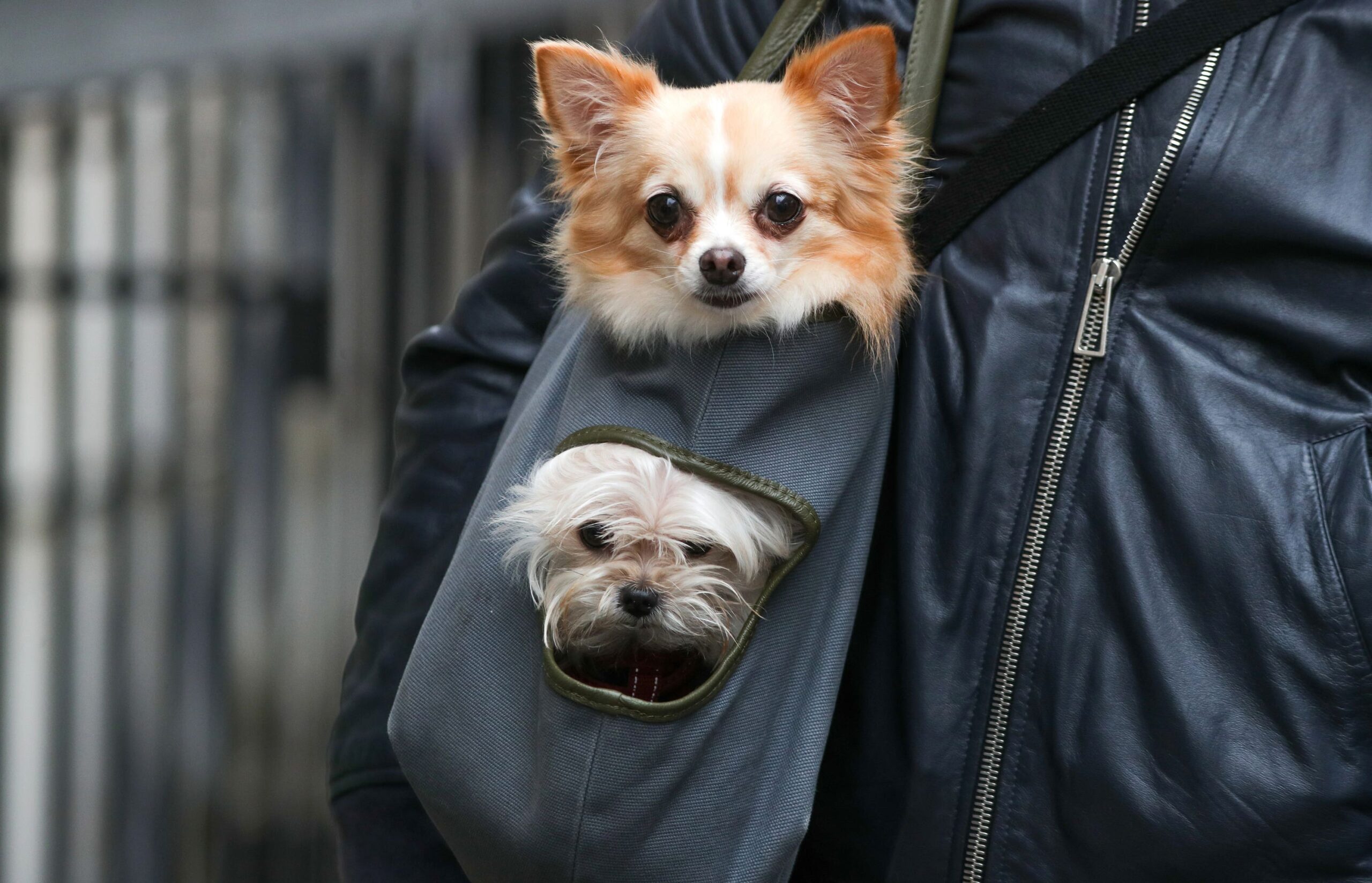Vets warn new owners thousands of dogs could be at risk from deadly parasite
Figures suggest that 42% of dog owners are not aware of what lungworm is or how it can infect their pets
Thousands of dogs bought over lockdown could be at risk from the deadly parasite lungworm, spread by slugs and snails, with many estimated dog owners walking unprotected pets, vets are warning.
Because of damp weather across the UK in May, experts suggest slug and snail activity will explode, meaning dogs are at greater risk of contracting lungworm in the garden, on walks and even by drinking from water bowls or puddles.
A survey from Elanco Animal Health indicates that 42% of dog owners are not aware of what lungworm is or how it can infect dogs.
Data from animal welfare charities suggests there was a recent surge in people buying pets as they looked for company during lockdown.
But vets are more concerned at the number of dogs that are not adequately protected.
The poll revealed that only 21% of dog owners surveyed had given their dog a lungworm preventative treatment in the past month.
Dogs can be infected with the potentially fatal parasite when they eat common slugs and snails in their garden or on walks.
They can also pick up lungworm while rummaging through undergrowth, eating grass, drinking from puddles or outdoor water bowls, or picking it up from their toys.
Dr Bryony Tolhurst, a behavioural ecologist at the University of Brighton, said: “The slime of slugs and snails can contain the infective lungworm parasite that can cause disease in dogs.
“With the unusually damp weather the UK has been experiencing this year, slugs and snails are more active, and lungworm larvae can survive for up to two weeks in their slime, potentially exposing dogs to the parasite.”
Bailey, a five-month-old retriever puppy, was diagnosed with lungworm in May after only being with his new family for a few months.
They were unaware of the need to prevent against lungworm.
Bailey’s owner Rachel Morris, from Surrey, said: “We had waited for a puppy for many years and lockdown has meant this was actually possible. We had never heard of lungworm.
“Bailey was always playing out in the garden, and we had never seen him eat any slugs or snails, but he did like to chew grass and unfortunately we now know that lungworm can even come from licking a snail’s trail from grass, toys and or bowls left outside.”
Anne Nelson, the senior veterinary surgeon who treated the puppy, said: “When Bailey came into the practice on Friday May 14, he was not presenting with the usual clinical signs we associate with lungworm, such as coughing, weight loss or a change in behaviour.
“Bailey was rushed back to us the following day, when we diagnosed lungworm and referred him to a specialist for vital care.
“Despite our best efforts, Bailey sadly passed away the next day as the lungworm infection had become too significant for his body to recover from.”
Vets are warning that the signs of lungworm are not always obvious, and puppies can be especially likely to eat slugs and snails, due to their inquisitive nature.
The infection is much easier to prevent than it is to cure, experts say.
Elanco’s new campaign – Open your eyes to deadly lungworm – warns owners of the effect parasite can have on their dogs.
Luke Gamble, veterinarian and campaign supporter, said: “I care passionately about this campaign because so many dog owners are unaware of the dangers of lungworm.
“The key thing is understanding that over-the-counter medications can’t protect dogs against lungworm, so it’s vital owners speak to their vet to make sure their dog is continuously protected.”
Lungworm has been spreading year on year within the UK, with 2,871 cases reported across the country, according to Elanco’s Lungworm Map, which pet owners can use to check how many cases of lungworm are in their area.
:: The online survey was conducted by YouGov. The total sample size was 2,003 adults of which 535 were dog owners, and fieldwork was undertaken between June 2 and June 3 2021.
The Press Association
Latest posts by The Press Association (see all)
- How to attract more bees to your garden - May 3, 2024
- The costly insurance pitfalls to avoid when kitting out your garden this summer - May 3, 2024
- Gavin And Stacey’s best moments: From Smithy’s Indian takeaway to Pam eating ham - May 3, 2024
- Princess Charlotte ‘s ninth birthday marked by picture release - May 2, 2024
- Strong passwords more important than ever, experts warn - May 2, 2024





















